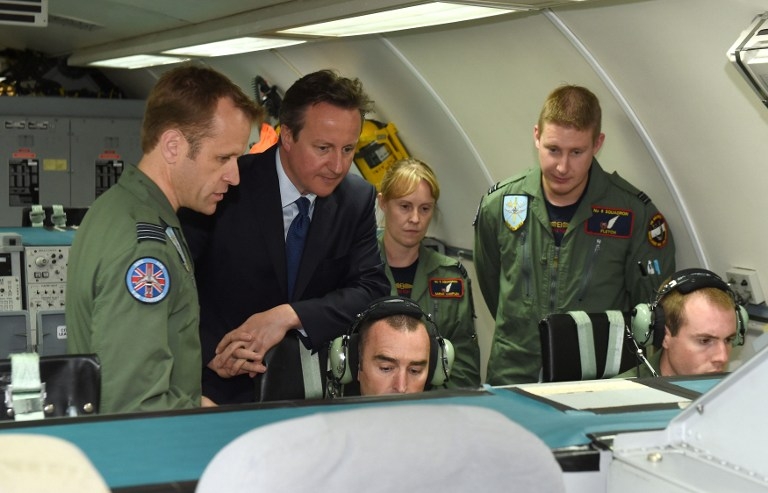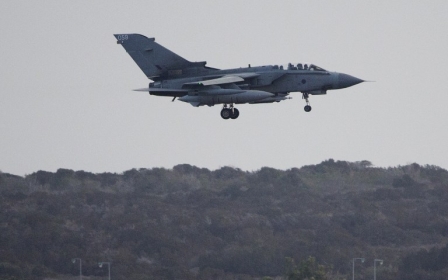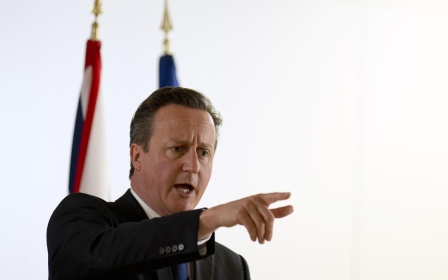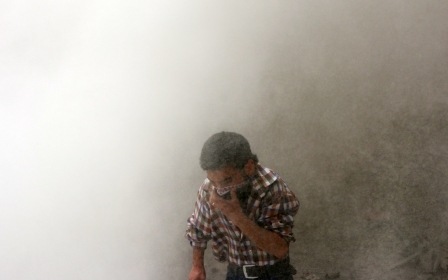British PM 'committed' to joining fight against IS in Syria

David Cameron, the British prime minister, has indicated that he wants the UK to play a more active role in the international fight against the Islamic State group, paving the way for the possible formal involvement of British forces in Syria.
Speaking on US television, Cameron said he was committed to “destroying the caliphate” in both Iraq and Syria. British jets have carried out airstrikes in Iraq since joining a multi-national coalition against IS last year but have so far only officially carried out reconnaissance flights over Syria.
But Cameron was last week accused of showing “contempt for democracy” after Ministry of Defence officials were forced to admit that British pilots embedded with US and Canadian forces had flown strike missions in Syria despite British parliamentary opposition to military involvement in the civil war-stricken country.
But he told the US's NBC television network on Sunday: “I want Britain to do more. Be in no doubt, we’re committed to working with you to destroy the caliphate in both countries.”
Cameron said he would need parliamentary support for any increase in the UK's military commitment to the coalition effort and said he was in talks with opposition leaders to secure support for an expansion of British involvement.
British members of parliament have approved the participation of UK forces in the international fight against IS in Iraq but not in Syria.
In 2013 parliament rejected a government motion seeking support for British military backing for a proposed US-led campaign against Syrian government forces in 2013 following a deadly chemical weapons attack on the outskirts of Damascus.
The Ministry of Defence revealed details of British pilots' involvement in Syria in response to a freedom of information request submitted by Reprieve, a human rights organisation, which made the information public on Thursday.
Critics on Friday accused David Cameron of displaying contempt for democracy and of keeping the public in the dark about the activities of the country’s armed forces.
British pilots 'bombing under US command'
“Parliament voted against bombing Syria two years ago. Now we find that the government ignored this and allowed British pilots to bomb under US command,” Lindsey German, one of the founders of the Stop the War Coalition, told Middle East Eye.
“This was a political and not a military decision and shows the contempt our prime minister has for democratic decisions. This should stop now and we should oppose all further attempts to bomb Syria.”
Michael Fallon, the UK's defence secretary, has also argued for an extension of British military involvement in the international campaign against IS and suggested it is an “illogicality” to target the group in Iraq but not in Syria.
British armed forces have committed about 1,000 personnel to the coalition, with most of them involved in airstrikes in Iraq launched from bases in Cyprus and others deployed in training and advisory roles with Iraqi and Kurdish forces.
On Thursday Fallon announced plans to deploy a second RAF spy plane to the region later this year and said the UK was the only coalition member conducting “manned ISR” over Syria.
Cameron last week invited several senior members of the opposition Labour Party to attend a meeting of the government's National Security Council in an effort to win cross-party support for potential attacks on targets in Syria.
A spokesperson for Cameron said: "He has been clear he wants to approach this with consensus. He thinks it is important that people understand the nature of the threat."
Cameron also suggested that the UK should consider joining the military effort in Syria after 30 British tourists were among those killed in an attack claimed by IS on a beach resort in Tunisia last month.
New MEE newsletter: Jerusalem Dispatch
Sign up to get the latest insights and analysis on Israel-Palestine, alongside Turkey Unpacked and other MEE newsletters
Middle East Eye delivers independent and unrivalled coverage and analysis of the Middle East, North Africa and beyond. To learn more about republishing this content and the associated fees, please fill out this form. More about MEE can be found here.




